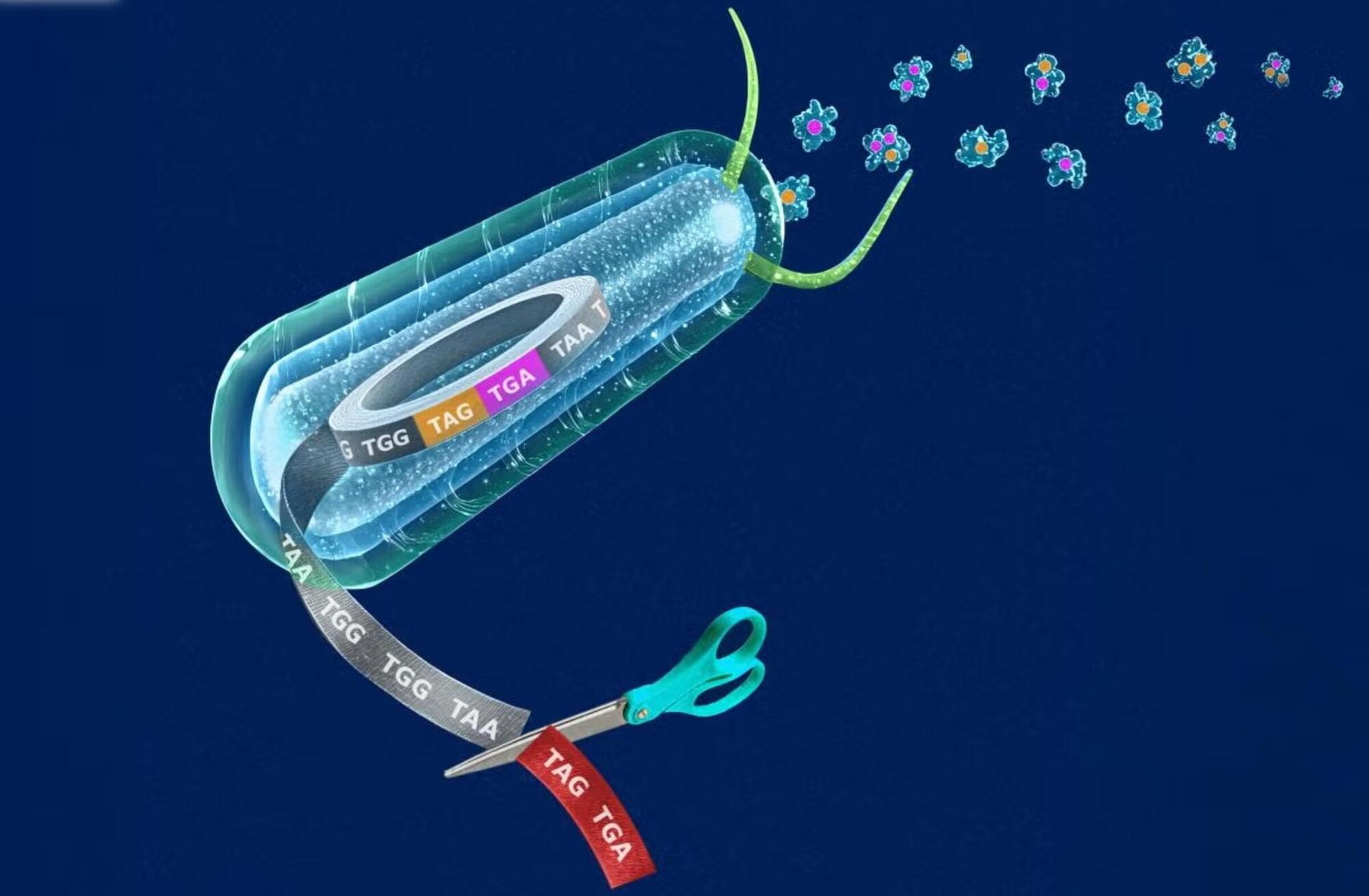Synthetic biologists from Yale were able to re-write the genetic code of an organism—a novel genomically recoded organism (GRO) with one stop codon—using a cellular platform that they developed enabling the production of new classes of synthetic proteins. These synthetic proteins, researchers say, offer the promise of innumerable medical and industrial applications that can benefit society and human health.
The creation of the landmark GRO, known as “Ochre”—which fully compresses redundant, or “degenerate” codons, into a single codon—is described in a new study published in the journal Nature. A codon is a sequence of three nucleotides in DNA or RNA that codes for a specific amino acid, which serves as the biochemical building blocks for proteins.
“This research allows us to ask fundamental questions about the malleability of genetic codes,” said Farren Isaacs, professor of molecular, cellular and developmental biology at Yale School of Medicine and of biomedical engineering at Yale’s Faculty of Arts and Sciences, who is co-senior author of the paper. “It also demonstrates the ability to engineer the genetic code to endow multi-functionality into proteins and usher in a new era of programmable biotherapeutics and biomaterials.”
